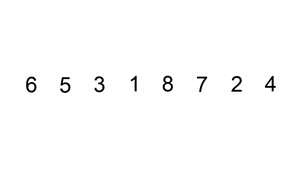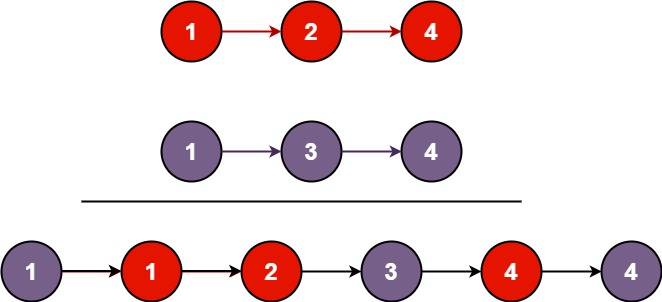| # | Problem | Pass Rate (passed user / total user) |
|---|---|---|
| 13072 | Gugulo |
|
| 13411 | Do something to the linked-list |
|
| 13412 | I hate Christmas |
|
Description
You are given N integers a1, a2, ..., aN, may contains same integers.
You need to answer Q queries: output how many integers of a1, a2, ..., aN is less than or equal to xi.
Note: Be careful of the efficiency of your strategy.
Input
The first line contains one integer N (1 ≤ N ≤ 105) – the number of integers you are given.
The second line contains N integers a1, a2, ..., aN (-2 x 109 ≤ ai ≤ 2 x 109).
The third line contains one integer Q (1 ≤ Q ≤ 105) – the number of queries you need to answer.
Then Q lines follow. The i+3-th line contains one integer xi (-2 x 109 ≤ xi ≤ 2 x 109) – the i-th query.
It's guaranteed that:
- For every i < N, xi ≥ xi+1(i.e every xi must be less than or equal to the previous xi).
- For the first five testcases: 1 ≤ N ≤ 1000
Output
For every query output how many integers of a1, a2, ..., aN is less than or equal to xi.
Sample Input Download
Sample Output Download
Tags
Discuss
Description
In this partial-judge problem, you are asked to implement 2 functions:
Node* merge_sorted_list(Node** heads);
For insert_sorted_list , you are given the head of a linked list and a integer val .You have to create a node with value val and insert it into the linked list so it can remain sorted.
The insertion operation will be like:

For merge_sorted_list , you have to merge 2 linked-list stored in the pointer array heads and remain the merged list sorted.

Input
There will be 2 lines of integers(1<= val <=100000000), which are the values of the 2 linked-lists.
The input stops when read in '-1' ('-1' is not a part of the 2 linked-lists).
Output
The values of the merged linked-list.
The values are separated by a whitespace and the output is also ended with a whitespace.
Sample Input Download
Sample Output Download
Partial Judge Code
13411.cPartial Judge Header
13411.hTags
Discuss
Description
One day, you become a santa claus and have to send everyone gifts.

There is a line of people, and each one has a non-unique number card which represents what gifts they will receive.
(Because you are a smart santa claus, you use linked-list to record the numbers)
However, when you see there are so many couples standing together, you feel so angry and decide to rearrange the order with the following rule:
Given the head of the linked list containing multiple groups (the size of each group is k ), reverse the nodes inside each group at a time.
k is a positive integer and is less than or equal to the length of the linked list.
If the number of nodes is not a multiple of k, then the left-out nodes in the end should remain the same order.
You are not allowed to alter the values in each node.
For example, when k = 2:

Note that it is a partial-judge problem that you need to implement the function:
Input
The first line is composed of a sequence of integer(1<= val <=100000000), which represents the values of the linked list.
The input stops when read in '-1' ('-1' is not a part of the 2 linked-lists).
The second line is k, the size of the group that will be reversed.(1 <= k <= length of the linked list)
Output
The values of the group-based reversed linked-list.
The values are separated by a whitespace and the output is also ended with a whitespace.